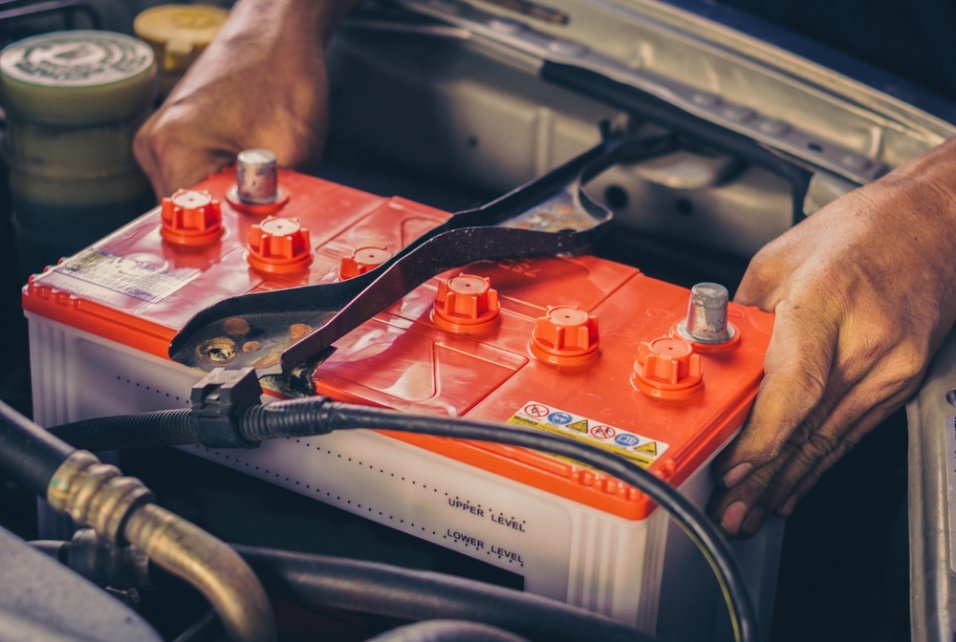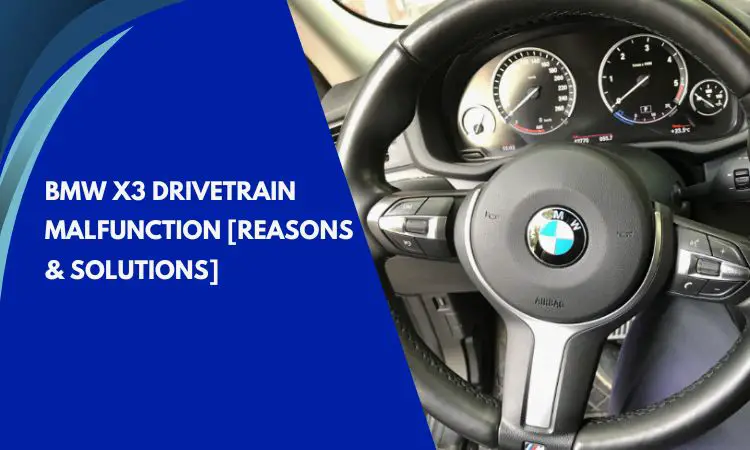4 Bad BMW Intelligent Battery Sensor Symptoms [Explained]
Some common symptoms of the BMW intelligent battery sensor going bad are
- Engine not starting
- Battery draining
- Battery warning light illuminated
- Dead battery
To fix this problem, diagnose properly and make sure to replace the BMW intelligent battery sensor. To get a detailed idea, keep reading this article.
Contents
What Are The Bad BMW Intelligent Battery Sensor Symptoms?
As discussed if the BMW intelligent battery sensor is not working you will come across symptoms like the engine not starting, the battery draining out quickly and the engine stalling. Let’s go through each of these symptoms in detail.
Engine Not Starting:
When your car’s engine doesn’t start, it might be due to a faulty BMW Intelligent Battery Sensor (IBS). This sensor is important because it keeps track of how much charge your battery has.
If the sensor isn’t working properly and doesn’t report the battery’s charge level correctly, it can cause issues like the engine not starting, or it might make the engine stall or stutter.
Battery Draining:
When your car’s battery drains quickly, it could be because of a faulty BMW Intelligent Battery Sensor (IBS). This sensor is attached to the negative battery cable and keeps an eye on the battery’s health.
It tells the car’s systems how the battery is doing. If the sensor stops working right, it might not tell the system how the battery is. This can make the battery overcharge or run down too fast, causing it to drain quickly and need replacing often.
Battery Warning Light Illuminated:
When you see the battery warning light turn on in your car, it could be because of a problem with the BMW Intelligent Battery Sensor (IBS). This sensor keeps an eye on the battery’s health and tells the car’s systems about it.
If the sensor stops working correctly, it might not give accurate information to the systems. This can lead to the battery getting overcharged or running down too much, which triggers the battery warning light to come on in your dashboard.
Dead Battery:
Your BMW not starting means the battery is probably dead and needs replacement. That said, you did not get the warnings you were supposed to get, which means there was an IBS failure.
Not identifying the mismatch of sensor signals and evident symptoms on your BMW will lead to such an issue.
Why Did The BMW IBS Battery Sensor Go Bad?
The primary function of the intelligent battery sensor in BMW is to monitor certain aspects relevant to battery health. It identifies things like voltages, temperatures, and the current levels of the battery.
However, this battery sensor can get faulty quickly due to its highly fragile nature. I’ll list some of the most common reasons below for your convenience.
Accumulation Of Dirt:
When dirt and dust build-up on the BMW Intelligent Battery Sensor (IBS), it can mess up its functioning and even ruin it for good.
Dust particles can mess with the sensor and slowly wear it down over time, especially if the area around the battery and sensor isn’t kept clean and maintained.
Damages Or Blows:
Since the IBS is super sensitive, any damage or accidental blows may harm it permanently.
It can happen when any nearby parts are getting removed or checked. Also, during regular maintenance, unexpected blows may damage the sensor.
Battery Replacement:
When you replace the battery in your car, you need to be careful with the BMW Intelligent Battery Sensor (IBS). This sensor is really sensitive and can easily get damaged if it’s not handled right during the replacement process.

If it gets messed up or connected wrongly after the battery change, it can make your battery run out faster than usual, meaning you’ll have to replace it more often. So, it’s super important to be gentle with the IBS when changing the battery and make sure it’s connected correctly afterward to prevent any problems.
Bonus: Find how you can bypass the BMW battery safety terminal.
How Can You Troubleshoot BMW’s Intelligent Battery Sensor?
Troubleshooting will be the first resort if you want to solve the problem. In this regard, you would require an OBD-II device for diagnosis and must follow a few steps consecutively.
These steps are mentioned below:
- Find the port for the OBD-II scanner, which will be under the dashboard on the driver’s side
- After finding, plug-in the scanner into the port
- Start the ignition without turning on the engine
- Select the model and make of your BMW in the scanner
- Navigate to the control unit and select DME
- Look up into DME section and watch out for reading fault codes
- If the scanner detects any fault code, it will show you the problem that must be resolved.
Bonus: Check out why the BMW battery won’t change.
What Is The Replacement Cost Of The BMW IBS Sensor?
The replacement cost for BMW IBS varies depending on your BMW model and sensor manufacturer. Usually, it will incur something between $75-460 In addition, if you take mechanical assistance to replace the sensor, the cost would be around $35-110.
Frequently Asked Questions (FAQs):
Where Is The BMW Intelligent Battery Sensor Located?
You’ll find the Intelligent battery sensor on the negative terminal of your BMW battery. To find the pathway toward the sensor, check the car’s manual.
What Happens When You Don’t Reprogram Your BMW Battery?
Your BMW battery is susceptible to failure when you don’t reprogram it. The battery becomes prone to draining, and it has a reduced lifespan. It can even cause a myriad of electrical problems in your BMW.
Can I Recall The IBS Sensor On BMW?
Yes, usually, it is possible but not recommended at all. By disconnecting the IBS from the negative terminal, you can do so, but it will eventually erase the change in the information status.
Is Disconnecting The Intelligent Battery Sensor OK?
Disconnecting the intelligent battery sensor doesn’t automatically make it right. But when there is frequent disruption of DME through multiple wakeups, one such disconnection can prevent this phenomenon and maintain battery voltage.
Conclusion
In conclusion, a Bad BMW Intelligent Battery sensor can problems with the engine and the battery. In most cases, you need to replace the BMW IBS sensor to fix this problem. You can easily do it yourself or consult a professional to get it done for you.


